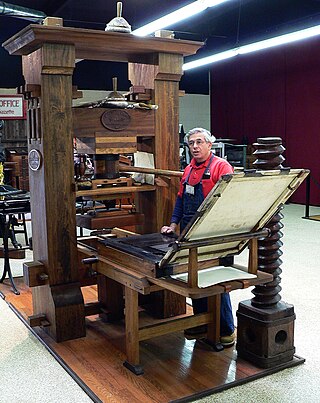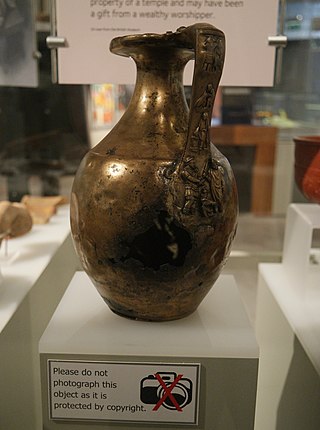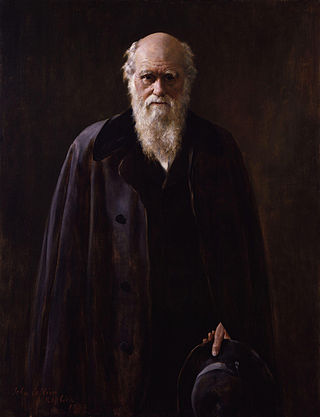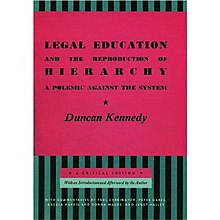A copyright is a type of intellectual property that gives its owner the exclusive right to copy, distribute, adapt, display, and perform a creative work, usually for a limited time. The creative work may be in a literary, artistic, educational, or musical form. Copyright is intended to protect the original expression of an idea in the form of a creative work, but not the idea itself. A copyright is subject to limitations based on public interest considerations, such as the fair use doctrine in the United States.

The Dewey Decimal Classification (DDC), colloquially known as the Dewey Decimal System, is a proprietary library classification system which allows new books to be added to a library in their appropriate location based on subject. It was first published in the United States by Melvil Dewey in 1876. Originally described in a 44-page pamphlet, it has been expanded to multiple volumes and revised through 23 major editions, the latest printed in 2011. It is also available in an abridged version suitable for smaller libraries. OCLC, a non-profit cooperative that serves libraries, currently maintains the system and licenses online access to WebDewey, a continuously updated version for catalogers.

A Juris Doctor, a Doctor of Jurisprudence, or a Doctor of Law is a graduate-entry professional degree in law. The JD is the standard degree obtained to practice law in the United States; unlike in some other jurisdictions, there is no undergraduate degree to practice in the United States. In the United States, along with Australia, Canada, and some other common law countries, the JD is earned by completing law school.

To publish is to make content available to the general public. While specific use of the term may vary among countries, it is usually applied to text, images, or other audio-visual content, including paper. Publication means the act of publishing, and also any copies issued for public distribution.
Duncan Kennedy is a legal scholar and held the Carter Professorship of General Jurisprudence at Harvard Law School until 2015. Now emeritus, he is best known as one of the founders of the critical legal studies movement.
The first-sale doctrine is an American legal concept that limits the rights of an intellectual property owner to control resale of products embodying its intellectual property. The doctrine enables the distribution chain of copyrighted products, library lending, giving, video rentals and secondary markets for copyrighted works. In trademark law, this same doctrine enables reselling of trademarked products after the trademark holder puts the products on the market. In the case of patented products, the doctrine allows resale of patented products without any control from the patent holder. The first sale doctrine does not apply to patented processes, which are instead governed by the patent exhaustion doctrine.
Software copyright is the application of copyright in law to machine-readable software. While many of the legal principles and policy debates concerning software copyright have close parallels in other domains of copyright law, there are a number of distinctive issues that arise with software. This article primarily focuses on topics particular to software.

A law school is an institution or professional school specializing in legal education, usually involved as part of a process for becoming a judge, lawyer, or other legal professional within a given jurisdiction.

Cultural reproduction, a concept first developed by French sociologist and cultural theorist Pierre Bourdieu, is the mechanisms by which existing cultural forms, values, practices, and shared understandings are transmitted from generation to generation, thereby sustaining the continuity of cultural experience across time. In other words, reproduction, as it is applied to culture, is the process by which aspects of culture are passed on from person to person or from society to society.

The Book of Murder, also known as the Marcus Affair, was a piece of propaganda written in the 1830s in opposition to the English Poor Laws. It was presented as the work of one pseudonymous "Marcus", and was published by Joshua Hobson. It aimed to incite opposition to the Poor Law Amendment Act 1834, which had altered the nature of poor relief in England and Wales. Previously, paupers were eligible for "outdoor relief" ; this shifted to "indoor relief", meaning that workhouses were built, institutions to provide shelter and basic sustenance.

A copyfraud is a false copyright claim by an individual or institution with respect to content that is in the public domain. Such claims are unlawful, at least under US and Australian copyright law, because material that is not copyrighted is free for all to use, modify and reproduce. Copyfraud also includes overreaching claims by publishers, museums and others, as where a legitimate copyright owner knowingly, or with constructive knowledge, claims rights beyond what the law allows.
Crown copyright is a type of copyright protection. It subsists in works of the governments of some Commonwealth realms and provides special copyright rules for the Crown, i.e. government departments and (generally) state entities. Each Commonwealth realm has its own Crown copyright regulations. There are therefore no common regulations that apply to all or a number of those countries. There are some considerations being made in Canada, UK, Australia and New Zealand regarding the "reuse of Crown-copyrighted material, through new licences".

Bridgeman Art Library v. Corel Corp., 36 F. Supp. 2d 191, was a decision by the United States District Court for the Southern District of New York, which ruled that exact photographic copies of public domain images could not be protected by copyright in the United States because the copies lack originality. Even though accurate reproductions might require a great deal of skill, experience and effort, the key element to determine whether a work is copyrightable under US law is originality.
Fair dealing is a limitation and exception to the exclusive rights granted by copyright law to the author of a creative work. Fair dealing is found in many of the common law jurisdictions of the Commonwealth of Nations.

In July 2009, lawyers representing the National Portrait Gallery of London (NPG) sent an email letter warning of possible legal action for alleged copyright infringement to Derrick Coetzee, an editor/administrator of the free content multimedia repository Wikimedia Commons, hosted by the Wikimedia Foundation.
Legal awareness, sometimes called public legal education or legal literacy, is the empowerment of individuals regarding issues involving the law. Legal awareness helps to promote consciousness of legal culture, participation in the formation of laws and the rule of law.

Capitol Records, LLC v. ReDigi Inc., 934 F. Supp. 2d 640 , is a case from the United States District Court for the Southern District of New York concerning copyright infringement of digital music. In ReDigi, record label Capitol Records claimed copyright infringement against ReDigi, a service that allows resale of digital music tracks originally purchased from the iTunes Store. Capitol Records' motion for a preliminary injunction against ReDigi was denied, and oral arguments were given on October 5, 2012.

The basic legal instrument governing copyright law in Sri Lanka is Part II of the Intellectual Property Act, No. 36 of 2003 replacing Part II of the Code of Intellectual Property Act, No. 52 of 1979.

Controlled digital lending (CDL) is a model by which libraries digitize materials in their collection and make them available for lending. It is based on interpretations of the United States copyright principles of fair use and copyright exhaustion.











